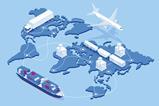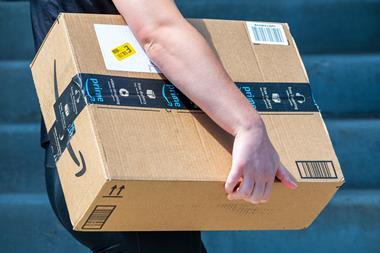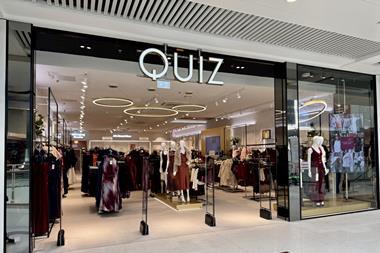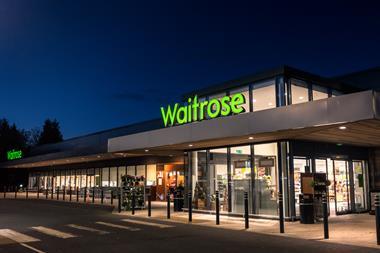Often overlooked, but utterly integral, tax compliance is more important than ever before as businesses become increasingly global, says Avalara’s Jake Estes.
For many global retailers the majority of their investment towards revenue growth goes into their ecommerce channel.
From analytics, SEO and hosting fees to order management, localisation, payments and dozens of other plug-ins, the expenditure list is endless.
Intuitively, this investment makes sense as cross-border ecommerce spend has doubled in the past year and accounts for nearly $1trn (£764bn) in global revenues.
Compounded by global government lockdowns due to Covid-19, these revenue figures have and will continue to increase in the coming months and years.
The tax challenge
One mission-critical aspect of any omnichannel retail operation is tax compliance.
In many countries, domestic tax can be straightforward. A UK-based retailer that only sells within the UK will only ever have to charge 20% UK VAT and file a quarterly UK VAT return.
One mission-critical aspect of any omnichannel retail operation is tax compliance
But this all changes once shipments go into the EU and distance-selling thresholds must be accounted for (or post-Brexit customs duties).
Even more complexity comes in when goods are shipped into Canada, the US, Australia or any other country where there may be customs duties and local taxes that need to be accounted for.
Compliance changes
As governments around the world face budget shortfalls due to the pandemic’s effect on their economies, taxing authorities are making more compliance changes than usual – coming in the form of rate increases, relief for specific industries and filing extensions, to name a few.
Having a tool that calculates taxes on the ecommerce store is a great start and many ecommerce software vendors provide some tax functionality off-the-shelf – but what about when a customer places an order over the phone and it’s processed directly in the ERP (enterprise resource planning) system?
Or when a wholesale order is shipped to a US-based department store to stock your product on their retail floor? Or to your 3PL provider’s warehouse in Japan for faster local delivery?
Regardless of where the transaction came from, the taxes still need to be accounted for.
The finer details
Let’s assume you’ve calculated taxes correctly across all your sales channels. Now you need to report and pay those taxes to the appropriate authorities.
If you’re collecting sales tax in the state of New York or goods and services tax (GST) in Canada, these tax offices are going to need to see sales figures for wholesale, phone order and bricks-and-mortar sales on top of the taxes you’ve been charging online through your own web store.
Accounting teams at retail businesses spend hours at month end aggregating data in spreadsheets for international tax reporting and the more countries you sell into means even more data to be managed
Do you sell through a marketplace? Add that to the list as well.
Accounting teams at retail businesses spend hours at month end aggregating data in spreadsheets for international tax reporting and the more countries you sell into means even more data to be managed.
Looking ahead
Considering most of these accounting teams are still working remotely, this means even more time is spent trying to collect data from different teams across the business.
The aim for any online business is to be able to automate as many of these processes as possible to make it easier for staff as well as more accurate.
And with less room for error when it comes to tax, businesses will have more time to focus on the best way forward as we navigate uncharted waters.
Tax may not be the sexiest segment of retail, but it certainly doesn’t have to be taxing.
To hear more from international industry experts on trading globally and ecommerce expansion, register for Avalara’s free virtual Summit Inspire Digital 2020.

Jake Estes is a solutions engineer for Avalara, the global leader in sales tax and VAT automation. For six years Estes has helped businesses utilise Avalara’s solutions to manage their global indirect tax compliance. He is a Certified US Customs Specialist and holds degrees from Washington State University (BA) and the University of Buckingham (MBA).





























